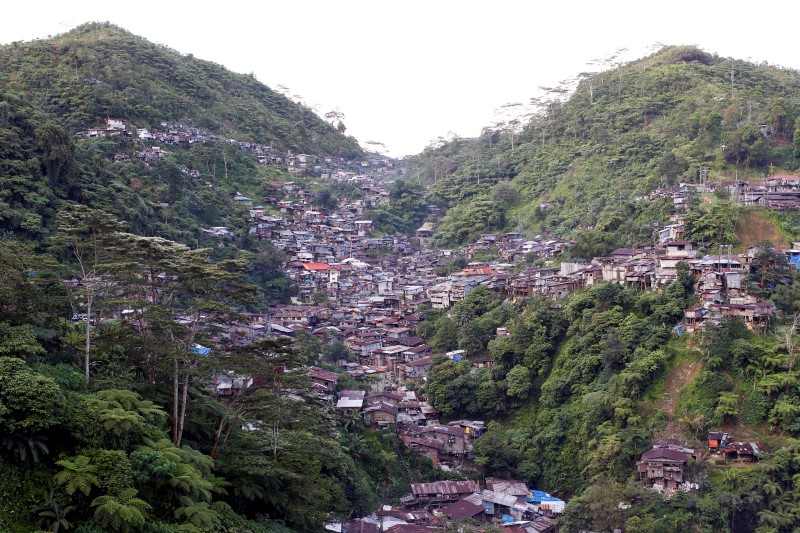By Manolo Serapio Jr and Enrico Dela Cruz
MANILA (Reuters) - After the Philippines became the top supplier of nickel ore to China in the last two years, its struggling mining industry may have felt like it was turning a corner.
But hope in the industry of getting an easier ride exploiting minerals in a country with a strong anti-mining lobby now looks misplaced with the new administration of President Rodrigo Duterte sending tough messages on mining.
Duterte has warned that he could cancel mining projects causing environmental harm, though he told business leaders last week that he was not against mining per se.
"But in making money out of the precious metals of the earth that belongs to the Filipino people you have to do it right," he said.
The country's mining sector, one of the world's largest in the 1970s, has since struggled partly due to environmental rules and policy flip flops, missing much of the mining boom in recent decades and now facing much lower commodity prices.
While not saying that she will ban any form of mining, Regina Lopez, the new mining minister, says it can cause suffering among the poor and has described it as "madness" even to consider open pit mining because of the environmental impact.
"We must stop killing our future for the interests of a few", the staunch environmentalist told Reuters.
The country has suffered mining disasters, including a 1996 tailings leak at Canadian-owned Marcopper Mining Corp's copper mine in Marinduque that contaminated rivers.
Lopez is expected to outline her plans at a media briefing on Friday.
"SURVIVAL OF THE FITTEST"
Ramon Adviento, senior vice president at Global Ferronickel Holdings Inc (PS:FNI), the Philippines' second-biggest nickel ore miner, said the industry was "shell shocked" by Lopez' appointment.
"I don't think it means the death of the industry, but what we expect to see is the survival of the fittest," he said, adding that there could be a nationwide crackdown on irresponsible miners, likely targeting small-scale producers.
But miners say hardline policies could backfire particularly as the Philippines has become the biggest nickel ore supplier to China after previous top exporter Indonesia banned shipments of unprocessed minerals, shipping 34.3 million tonnes last year.
Mining contributes less than 1 percent to the Philippine economy. Of 9 million hectares identified by the government as having high mineral reserves, only 3 percent is being mined.
"Duterte wants hard investments and new projects invest billions of dollars... and these are done in far-flung areas which goes with the president's call for rural development," said Nelia Halcon from the Chamber of Mines of the Philippines.
The challenge is how to lure back foreign investors.
Mining investment shrank to a three-year low in 2015 below $1 billion (750.13 million pounds), after President Benigno Aquino, Duterte's predecessor, banned new mining permits during his term and sought to increase the state's revenue share from mines.
Commodities giant Glencore Plc (L:GLEN) last year quit the $5.9 billion gold-copper Tampakan project in the southern Mindanao island, that has failed to take off after the province where Tampakan is located banned open-pit mining in 2010.
The country only has a handful of foreign investors in mining currently, including Australia's Oceanagold Corp (AX:OGC) and Canada's B2Gold (TO:BTO).

It's going to take some time to reassure foreign investors, which have the capital and technology, that "the risk is not too high," said business consultant Peter Wallace.